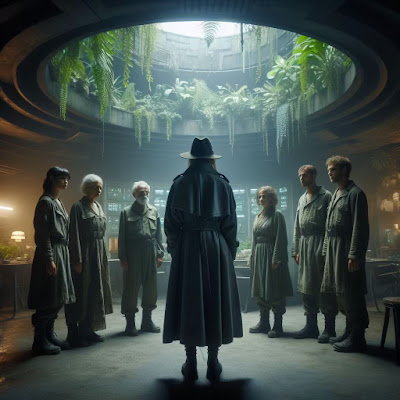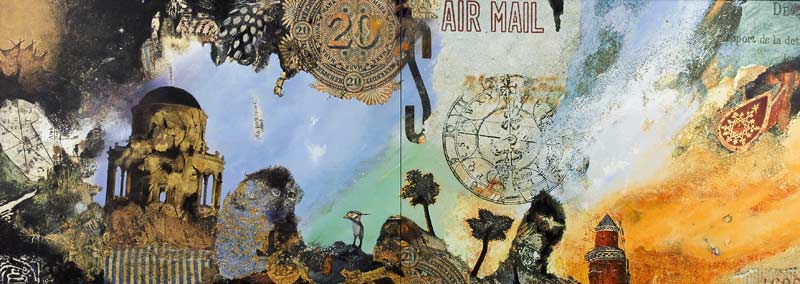.png) |
© Joe Mazza
|
Originally published at Broadway World on April 13, 2024
Alexandra, stepping into the role of Marian Paroo, a character known for her complexity and depth, what aspects of her personality do you find most compelling to explore?
Given your extensive background in theatre, including roles in Fiddler on the Roof and Master Class, in what ways does portraying Marian challenge you in new ways?
Having spent many of my marriageable and child-bearing years as a Midwestern, bookish spinster myself, I feel adequately prepared to portray the role…
Okay okay. Jokes aside,
Being an actor is as fascinating — just when you think you have landed upon the next realization, stage of growth, place of acceptance, or the next “AHA,” another one presents itself to you. What a gift. While Marian is in many ways “in my wheelhouse” (as a golden-age soprano, an American [I play a lot of not-Americans], a bookish, aging woman) she’s presented great surprises.
What I recall from the era of my solitary life before I met my husband, Alec (met him, at the age of 35—) was how very full-to-the-brim with love I was, with nowhere to offer it. I think many people relate to that state of being. I was certain my life story would not be a romantic one (which is absolutely fine, if that’s your choice— but if I could have been honest with myself at the time, it was not my choice). I possessed an equal amount of
1. Reasonable standards/ principles about what I wanted love and partnership to be, and
2. deeply unhelpful made-up stories I was telling myself that ultimately just perpetuated my solitude.
No, I was not merely “drawn to unavailable people,” because the most unavailable person in the equation was me. I was in my very own way, terrified of being known or seen or allowing myself to be vulnerable enough to receive love.
This is Marian’s plight.
More than her rigidity, her isolation, or her status as an outcast.
And perhaps this plight is why I have not personally played her until now. Perhaps I had to personally be on the other side of Marian’s second act— to appreciate the agony of her self-sabotage and recognize myself in it. To acknowledge how much time I wasted with my heart encased in iron locks. To fully appreciate how courageous a thing it is to allow yourself to be loved, and of course: love’s utterly transformative power on the other side of all that terror.
.png) |
| © Joe Mazza |
As audiences experience this production of The Music Man, what message or feeling do you hope they take away from seeing you as Marian Paroo?
All of the above, plus:
- Women are people.
- Read banned books.
- Let yourself be loved.
- We need both facts and poetry.
- It’s never too late.
The Music Man is celebrated for its classic American storytelling and memorable score. How have you approached singing Meredith Willson's iconic music, and do you have a favorite number to perform?
It is hard to believe that even though I have done a great deal of singing in concert or cabaret settings in the last 5 years, I haven’t been in a “proper” musical production since before the pandemic! So the first challenge is the discipline, technique and stamina to perform such a powerhouse soprano role 8 times a week with consistency and facility of expression.
And honestly, it’s been pure joy to go to the “vocal gym” and celebrate what I do feel is my natural sound.
I love the entire score, but I think my favorite song to sing is the “Lida Rose/ Dream of Now” number in the second act with our tremendous barbershop quartet.
Two reasons.
First, Marian’s verse is a soaring dreamscape of fantasy and yearning. It’s almost erotic in how fully alive her yearning is— and I don’t think I had ever previously acknowledged that about this character. (I mean: the clues were all there, she reads Balzac for goodness sake!)
Second, theatre is a team sport. So while I appreciate a lovely solo as much as they next soprano (LOL), there is nothing like making music in a group— and this particular group is world class.
This production brings together an incredible cast and creative team. What has it been like worth with the incredible ensemble of artists?
A chef is only as good as their tools and ingredients.
A painter only as good as their materials.
A tennis player made better by the quality of their opponents.
By this logic, a theatre artist is only as good as their playmates (and it’s called a “play” for a reason.)
Every member of our creative team and ensemble is world class-- I’m particularly awed by Raquel Adorno’s costume designs and honored beyond language to share a stage (and a dressing room!) with the Chicago theatre legend that is Janet Ulrich Brooks as Mrs. Paroo, and the rising star that is Kai Edgar Joseph as Winthrop.
These are only a few of the team players that awe me, daily.
The majority of my work occurs with KJ Hippensteel’s Harold Hill. KJ’s Harold is one of the most fully-realized, heartfelt portrayals of the role I’ve seen— he has the stage charisma of a cult leader and the endlessly likable charm of Dick Van Dyke, and though I don’t know a great deal about the finer details of his personal life, one can tell he really loves his wife (it’s something you can see in his eyes, in his work.) I think one can always tell when an actor knows/has known true love— it’s incredibly special to act with.
KJ is also so willing and available to exposing the vulnerabilities of Harold Hill (which always, on some level, requires exposure of the actor-self too— and that takes a tremendous courage). To borrow a metaphor from above, it’s a gift to play “pro-tennis” with him. Long may KJ Hippensteel lead companies.
But the deepest gift of this experience has been collaboratively re-creating a new vision of Marian Paroo with our director-choreographer Katie Spelman. Katie and I met and worked together 5 years ago, and formed an intense adult-friendship bond that was instantaneous (and mutually insistent upon being permanent.)
One of the things that has been breathtaking is how our deep knowledge of one another has informed and shaped the mutual creation of this “new” Marian. This Marian is informed by both of us, who share much in common with Marian herself, and with one another as deeply feeling, intelligent women with much to give the world and sometimes getting in our own (different) ways.
The moments of side-splitting laughter, of debate, of shared vision, of exponential, mushrooming creativity are endless between us.
But it is the moments of what I can only describe as platonic intimacy that have defined our collaboration. One rehearsal memory is so private and tender it doesn’t belong anywhere but in my memory, but suffice it to say the exchange in rehearsal silently expressed Katie saying “let me give this to you” and my silent reply being “let me do this for you.” The end result is an act of service to Marian, to all woman, to art, and to one another. I don’t know that I’ve ever had an experience like it.
.png)
The Music Man has a timeless quality that resonates with audiences across generations. What do you believe is the key to its enduring appeal, and how does this production capture that essence?
In many ways The Music Man as written by Meredith Wilson in the 1950s is about “America” with a “capital A.” America in the early years of the 20th century, in many ways still young, self-absorbed and foolish, in many ways brave, visionary and pioneering. I think what Katie Spelman is attempting to lead us all to do is envision and embody an America that was and an America that could be, when the best of us comes together as a community.
In our production the fictional River City has recently been through a terrible plague (not at all unlike our world in 2024), experienced individual and collective grief, and in many ways has spiritually “died.” Harold Hill brings River City back to life— even if it is by accident.
What human being doesn’t empathize with the sensation of dreams and possibilities bringing our souls to life? That’s The Music Man’s enduring appeal.
Aside from that? Come on: the score is a hit parade (as they kids say “no skips” on this album), the book is impeccable, the dance numbers are bangers, and there’s an unlikely love story. What’s not to like?
Marian Paroo's transformation throughout The Music Man is pivotal to the story. How do you navigate her evolution from a skeptical librarian to someone who embraces change and love?
Everything changes when Marian sees what Harold Hill’s poetic lie has done for her brother Winthrop. Her grief-stricken, shadow of a baby brother transforms into a joyous child. The power of Harold’s promise changes Winthrop’s life, and brings the town of River City back to life— and it is palpable, undeniable. She can’t deny that though he may be a literal charlatan, he is in touch with something powerful that exceeds her understanding. That crack— that one aperture in— lets the light in to her soul as well.
Not every fact with a perfect citation contains the poetry that makes life fully expansive. Harold provides—almost accidentally—that poetry.
And what I find most interesting?
Marian lives a truthful life, and Harold lives an untruthful life.
But neither of them live honest lives.
They are dishonest in their own ways— with the world and with themselves.
That is, until they are in the presence of the other— honest at last.
Why must audiences see this production of The Music Man?
- You will see a deeply explored version of this story in character and context.
- You will see bodies of color inside the story in an all-embracing way, allowing new people to tell this story.
- You will see 37 brilliant performers on stage in the round (the second largest cast in the Marriott’s history)
- You will hear a gorgeous orchestra play this classic score
- You will laugh, you will cry, you will fall in love. You will want to go out and buy a trombone.
See you at the library.
.png)




.png)
.png)
.png)
.png)




































